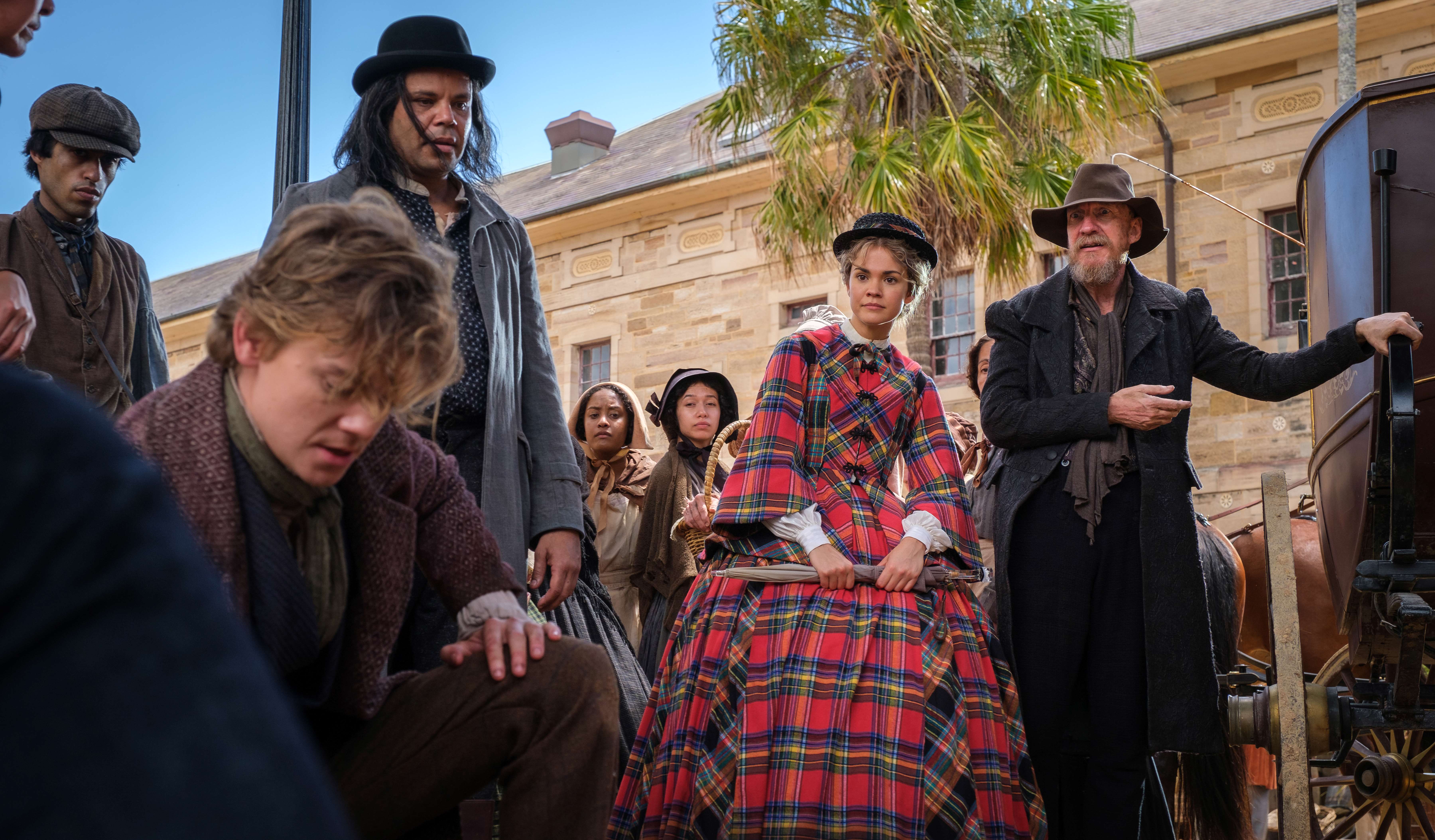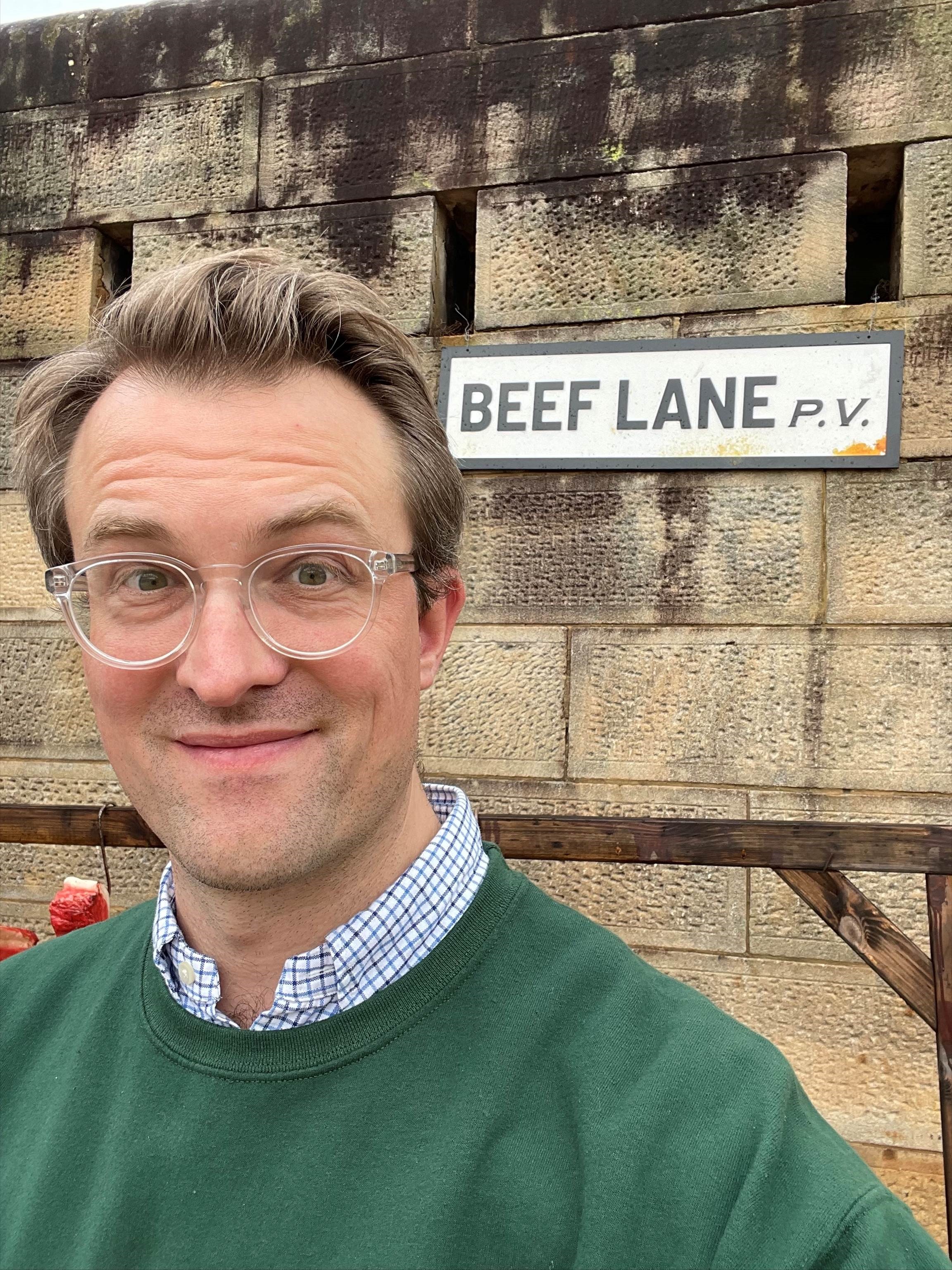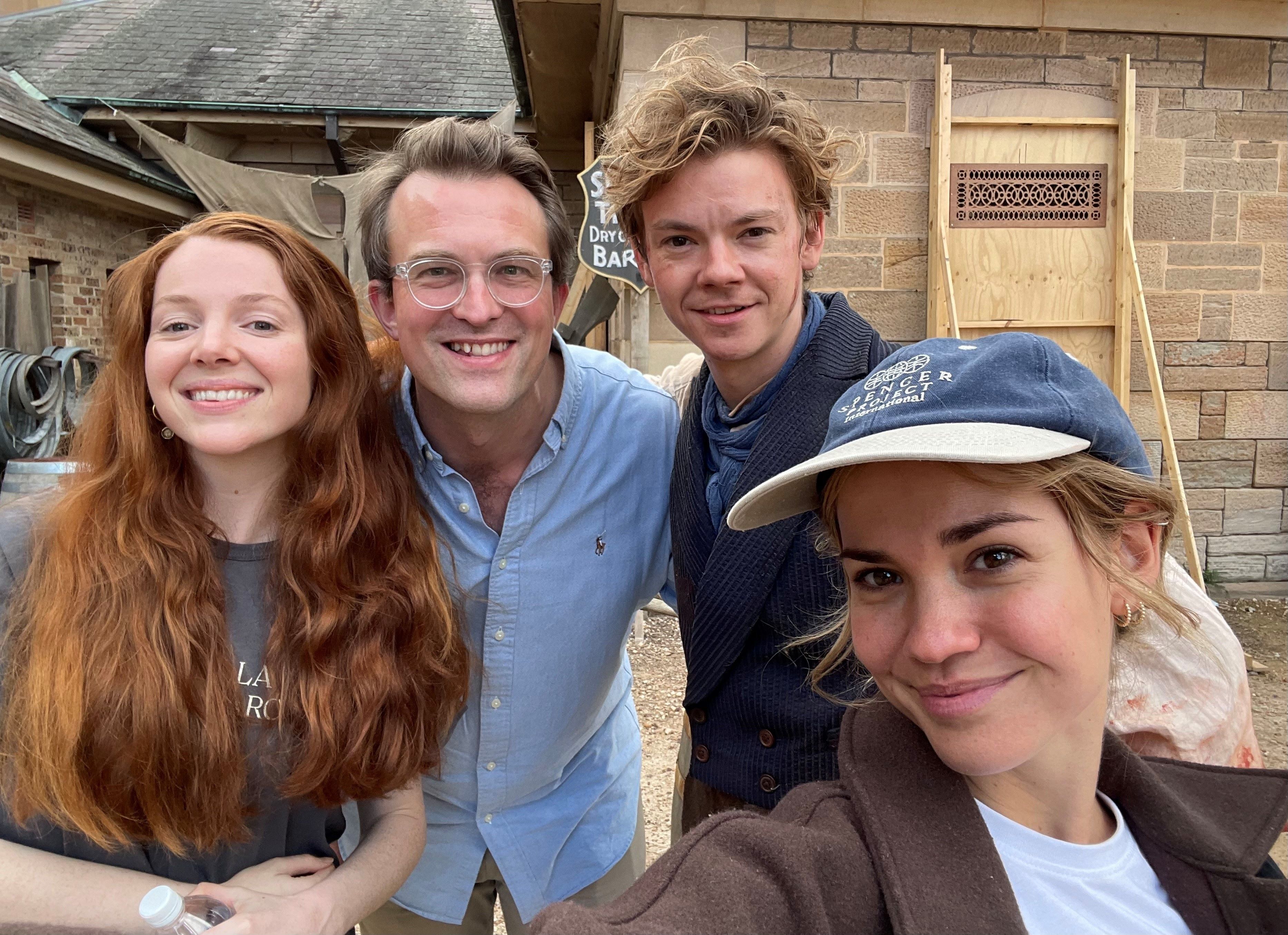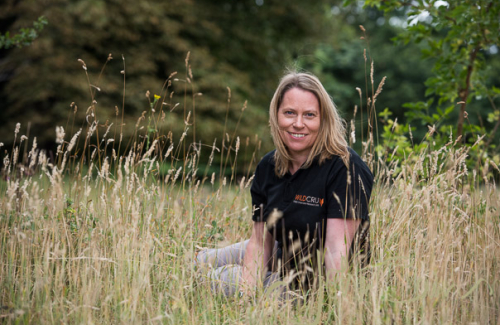More Pembroke news
On Writing for Disney, Victorian Surgical Methods and Marmalade Toast: James McNamara (2006, English DPhil)
NEWS |
The first time James McNamara set foot in Pembroke followed a rainy, muddy walk from Cowley Road, where he was staying in accommodation belonging to his original College, Mansfield. Feet “hideously wet”, squelching through Pembroke Street – all of this was forgotten the minute he stepped into Old Quad. “It was like a musical box of a College,” he recalls during our Zoom call from his home in Los Angeles, “a hidden glory in Oxford.”
James would not, however, call Pembroke his own college for another year yet. Though he enjoyed being at Mansfield and rowed in the first eight there, Pembroke was a place he spent a lot of time, as it was where his DPhil supervisor Professor Helen Small was based. He remembers creaking up old staircases to meet her for the first time, an almost-too-stereotypical image of Oxford life. When the opportunity arose to move here and become a Junior Dean, he accepted. It would become, in his words, a “life-changing experience”.
James’s use of such beautiful imagery to describe Pembroke is no coincidence, but speaks to his years of experience as a screenwriter and academic. Most recently, he was responsible for creating The Artful Dodger, a Disney+ series following the titular Dickens character, Jack Dawkins (Thomas Brodie-Sangster), as he forges a new life for himself as a surgeon in the fictional penal colony of Port Victory in Australia. As fate – or James’s narrative construction – would have it, Jack’s former thought-to-be-hanged boss Fagin (David Thewlis) reappears, and drives Jack back towards his old ways out of his desperation to repay a sizeable gambling debt. If things weren’t complicated (or romantic) enough, the Governor’s bright daughter, Lady Belle (Maia Mitchell), blackmails Jack into helping her become the first female surgeon. Without wishing to spoil any further details for interested readers, from here, the series unwinds into a bright, exuberant comedy-drama, culminating in a “dramatically rich” finale.

You might at this point be forgiven for wondering where Pembroke comes into a series about nineteenth-century Australian surgeons. But for James the two are inextricably entwined. “If I hadn’t done my DPhil at Pembroke, I couldn’t have done Dodger,” he tells us, explaining that his research had focused on historical surgical techniques in 17th-19th century literature, which allowed him to base a lot of the series on his knowledge from his time here. Such intensive research into this topic was what first secured him the role of screenwriter and creator for the show; it enabled him to “authentically bring that world to life” and find the “pressure points” of the period, such as the revolutionary discoveries of antiseptic. In fact, every single surgery featured in Dodger is taken from a real case in medical history. As he says this, as if to prove his point, James proudly shows off the Victorian medical books and surgical equipment which sit on the shelves in the background of our call. He laughs about how he has to remove the latter when his toddlers come into his office – perhaps not the most child-safe toys.
Woven into the overarching historical narrative is the more modern issue of women in medicine, presented through Lady Belle’s narrative arc. This feminist angle, James says, was inspired by his upbringing in a family of “brilliant academic women”, and his wife, a medievalist academic who completed her DPhil at Exeter College.
“I wanted to tell the story of how the unfair social constraints on Victorian women’s intellectual and professional freedoms must have impacted on them personally,” he shares. “Obviously I don’t have that lived experience, so I did a lot of research and a lot of discussion with women who do have that experience.” Lady Belle’s younger, marriage-oriented sister Fanny (Lucy-Rose Leonard) offers a counterbalance to Belle’s story, presenting a female character who does want that traditional trajectory. That research informs all areas of James’s writing – from Victorian surgical practice to female oppression, even down to what they would stock in the hospital of a Victorian Australian penal colony – is clear throughout the whole of our discussion, and testament to his studies here at Pembroke.
“Academic work is really the research and development and thinking work for my creative work,” he says, a sentiment evident from his years as an academic. Although his focus now lies mainly in screenwriting, he still lectures on screen adaptations of literature at UC Santa Barbara today, an academic background which naturally bleeds into his television work. James’ career is just one example of the often unexpected ways in which knowledge and skills gained through academic study can feed all sorts of careers.
It is clear that James’s extracurricular experiences at Pembroke were no less formative, as he reminisces on the importance of his time a Junior Dean, a role he “took really seriously”, always wanting to “help everyone have a better experience” and be there for others. As a perk of this role, he lived in 12 Pembroke Street for a year, and he recalls how much he loved walking down Beef Lane every morning – a memory so fond, in fact, that when asked to give names to the fictional streets in The Artful Dodger, he opted to baptise the butchers’ street in its honour. Spending the previous year living in the GAB was no less agreeable to James, who, remembering such idyllic activities as tossing marmalade toast through his window to the swans of the Thames, describes it as a “really peaceful place to be” – although perhaps less so for the poor cyclist who was once inadvertently assailed by flying toast. “He was very gracious about it,” he laughs.

Perhaps it is such warm memories that led James to creating a series such as Dodger, described by the Guardian as a “light, breezy” distraction to the “assorted […] horrors” of the modern world. We asked him whether he would agree with this judgement. “I wanted it to be a series that allows you to laugh, allows you to feel but fundamentally leaves you walking away feeling light and hopeful,” was James’s response, adding that such a show is important in the current climate following the “difficult period” we have all recently experienced. He pointed to the recent success of shows such as Ted Lasso, and the need for warm-hearted escapism that is evident as a result. “I think Dodger may be dramatically deeper [than Ted Lasso],” James hesitates to suggest, admitting that it was “difficult to balance tonally” as it straddles the line between escapist and stimulating. But overall, he says, he hopes that “the joy and warmth and true love” the cast and crew felt for the characters would be conveyed to the audience. “It was an exceedingly happy set,” he remarks. “People said it felt like doing a school play again, that kind of magic.”
“Magic” is a word thrown around a lot during our conversation, and the emails preceding it. He uses it to describe many aspects of the show – the time on set, the cast’s talent – but overall, it’s used most when talking about his time in College. “If I had to describe Pembroke in one word, it would be magic,” James says. Adding Beef Lane to the Dodger universe was a way “to weave a little bit of the magic I felt studying at Pembroke into the series” – but it’s clear his time here has informed more than just a fictional street name, whether within his career or elsewhere in his life since he graduated in 2009.

As our conversation came to a close, James left us with a final piece of advice for Pembroke students on the cusp of graduation.
“There’s a great deal of pressure on you all to have everything sorted – to have your training contract, your grad job, your PhD place,” he admits, having himself graduated into a financial crisis which led him to go into law, rather than his passion for writing. “But it doesn’t matter that much. What’s the thing you’ve always wanted to do? Now’s the time to give it a go. You have time in your twenties to explore, and even if you spend five years trying something and it doesn’t work out – you’ll be twenty-seven. Who cares!”

